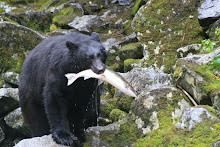
 Iceland is one of the world’s most remarkable countries, full of natural travel wonders and contrasts. In a small area, soaring icy glaciers, spouting geysirs, black lava flows and plunging waterfalls compete and complement to paint an extraordinary landscape. Much of this highly active landscape is due to the gradual parting of two continental plates – where Europe and America truly meet. Most such activity happens deep in the ocean floor, but this continental junction weaves a path through the centre of Iceland, where it is known as the Reykjanes Ridge (or the less interesting Mid-Atlantic Ridge to geologists). It produced the rich Norse legends where the sagas of mighty gods and unearthly powers replace the geological explanations of today.
Iceland is one of the world’s most remarkable countries, full of natural travel wonders and contrasts. In a small area, soaring icy glaciers, spouting geysirs, black lava flows and plunging waterfalls compete and complement to paint an extraordinary landscape. Much of this highly active landscape is due to the gradual parting of two continental plates – where Europe and America truly meet. Most such activity happens deep in the ocean floor, but this continental junction weaves a path through the centre of Iceland, where it is known as the Reykjanes Ridge (or the less interesting Mid-Atlantic Ridge to geologists). It produced the rich Norse legends where the sagas of mighty gods and unearthly powers replace the geological explanations of today. In the north of Iceland, Mt Krafla has erupted regularly as recently as 1984. A road of black sooty lava replaced the emerald green grasslands that had struggled to grow over the remains of prior eruptions. The tell-tale yellow sulphurous deposits and venting steam (top photo) shows the Earth continues to bubble where the tectonic plates drag apart from each other at two or three centimetres per year.
In the north of Iceland, Mt Krafla has erupted regularly as recently as 1984. A road of black sooty lava replaced the emerald green grasslands that had struggled to grow over the remains of prior eruptions. The tell-tale yellow sulphurous deposits and venting steam (top photo) shows the Earth continues to bubble where the tectonic plates drag apart from each other at two or three centimetres per year.
In places like Krafla where the gap is narrow, you can stand astride the two continents, being careful to avoid the heated fissures.  The world’s first parliament was conducted in Þingvellir (pronounced “Thingvellir”) over 1,000 years ago. Maybe symbolically for the fractious behaviour of many parliaments, the continental ridge runs through Þingvellir where again it is possible to stand astride the two continents.
The world’s first parliament was conducted in Þingvellir (pronounced “Thingvellir”) over 1,000 years ago. Maybe symbolically for the fractious behaviour of many parliaments, the continental ridge runs through Þingvellir where again it is possible to stand astride the two continents. Near Iceland’s capital, Reykjavik and its beloved Blue Lagoon, a recently constructed bridge that needs to be adjusted every few years to account for the moving ground, stands astride a broader division between the two plates. A short stroll over the typical black volcanic soils quickly transports you from Europe to America.
Near Iceland’s capital, Reykjavik and its beloved Blue Lagoon, a recently constructed bridge that needs to be adjusted every few years to account for the moving ground, stands astride a broader division between the two plates. A short stroll over the typical black volcanic soils quickly transports you from Europe to America.
While exploring the wild beauty of this majestic and mysterious landscape, keep a thought for those trying to build roads, pipelines and bridges as this wonderfully hospitable country literally slowly tears itself apart.
Other Scandinavian Posts
The Little Little Mermaid (Copenhagen, Denmark)
Fish, Fjords and Fantasy (Lofoten Island, Norway)
Reindeer Paté, Cloudberry Pie and Sweat (Kuopio, Finland)
The Seventeenth Century Titanic (Stockholm, Sweden)
The Viking Stonehenge (Kåseberga, Sweden)
Photo Source: map
Tuesday, April 28, 2009
Astride the Continents (Iceland)
Labels:
Europe,
Iceland,
natural wonders,
travel wonders
Subscribe to:
Post Comments (Atom)


5 comments:
It look very bleak and barren, but beautiful at the same time
Read this twice (as I do most of your posts!). Iceland is not at the top of most people's travel list but its extremes make it so-o-o compelling.
@martin: I think that the starkness brings an unbounded beauty.
@heather: Very generous remarks. It is a compelling and enchanting location. Add it to your list.
Great article...it becomes very adventurous when we can see something uncommon and different.
@cruises to bermuda: Thank you. The different is what makes travel so enthralling.
Post a Comment